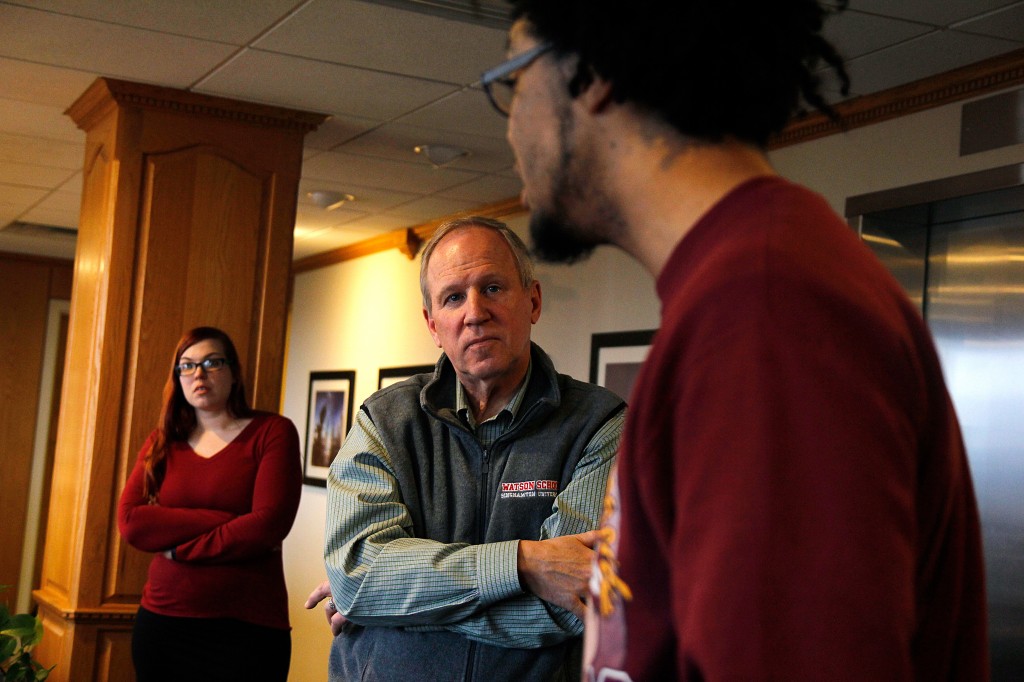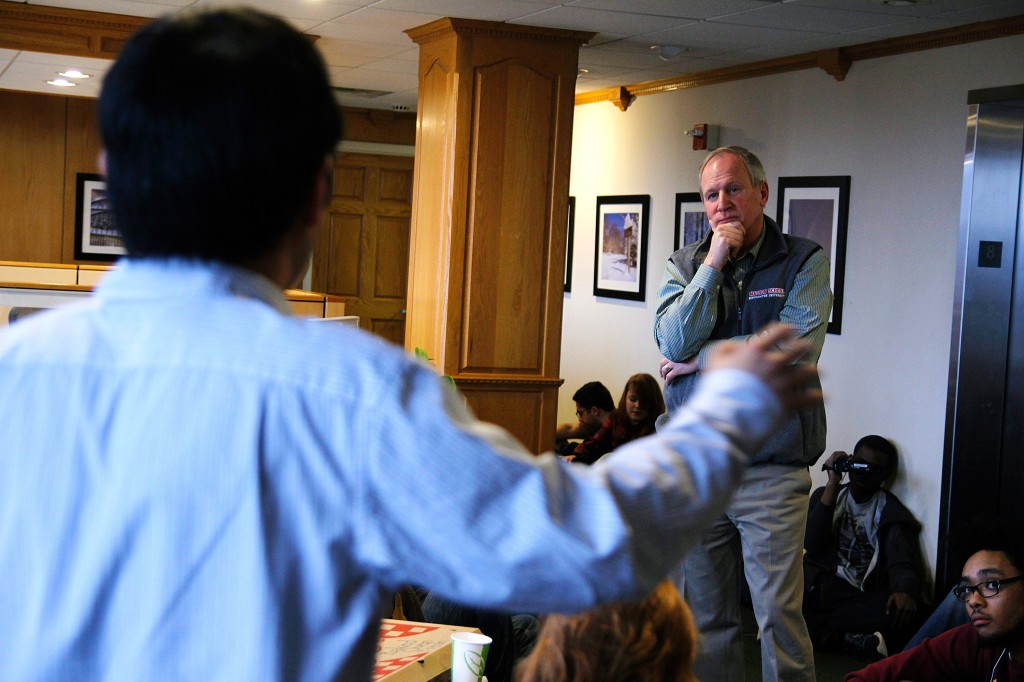
Several members of Students for Change, as well as other students and faculty members, converged upon President Stenger’s office Friday afternoon, occupying it until they received an apology from Stenger for his abrupt exit from Wednesday’s meeting.
After meeting at the Pegasus statue at 12:30 p.m., protesters walked through the Marketplace and across the Peace Quad to the Couper Administration Building. Their goal, they said, was to personally deliver a letter to the president asking for a proclamation of a zero-tolerance policy for racism and a promise to send a representative to a meeting in three weeks to report on the progress of the demands for varying degrees of cultural competency.
Over 20 individuals filled the waiting room in front of the president’s office. When they arrived, Chief of Staff Terrence Kane told them the president would not be available to them. The protesters decided to wait.
When Pamela Zwierlein, the special assistant to the president, arrived at the office, she accepted the letter from Students for Change. However, she refused to contact the president or tell them where he was. Students argued that their tuition funded her salary and that she was obligated to do what they wanted, but Zwierlein said she answers directly to Stenger.
As they waited, the occupiers discussed what they claim is a low number of culturally competent teachers on campus as well as a lack of urgency from the administration regarding their demands. They also went through recent racist posts on the social media app, Yik Yak, which they said is a barometer of the campus climate.
“These are students that go to the University, and only students from the University,” said Jordan White, a junior majoring in sociology. “It’s not just one person posting a billion messages.”
Addressing the administration’s slow response, Graduate Student Organization President Alison Coombs acknowledged that BU administrators must work within the bureaucratic process in order to make some of the large institutional changes the group was suggesting.
“They are also in a state of legal obligation, we have to remember that,” Coombs said. “We should respect to some extent that they have other obligations to not just us.”
At 4:30 p.m., Provost Donald Nieman arrived with his family to address the students.
He told students that their concerns were of high priority to the University, but added it was difficult to address them in a large group setting.
“All these are issues that are important to me as an administrator and the scholarly work I’ve done as well, and I’m very interested in engaging on these issues,” Nieman said. “Each one of the issues that you raise are ones that fall within academic affairs, and … I’ve been frustrated for not having that more granular dialogue. I’d be more than happy to do that.”
However, Raul Cepin, a sophomore majoring in finance, said previous dialogues had been unsuccessful and unproductive.
“There seems to be a disconnect between what we’re providing to you in meetings and what’s happening in the administration,” Cepin said.
Nieman also told students that although he condemns acts of discrimination on campus, his hands are tied if specific incidents are not brought to his attention.
At 5:15 p.m. Stenger arrived to pick up his things from his office for the weekend. He apologized to the occupiers for the manner of his departure at Wednesday’s town hall meeting.
“First let me say that Wednesday night I left in a hurry,” he said. “I’m sorry for doing that. That was not very professional of me. I was tired, I had been sitting there for a while. My heart was racing so I just left. What I said on the way out was not very good. I’m sorry for that.”
President Stenger declined to answer any questions, and left with Provost Nieman and Chief of Staff Kane.



